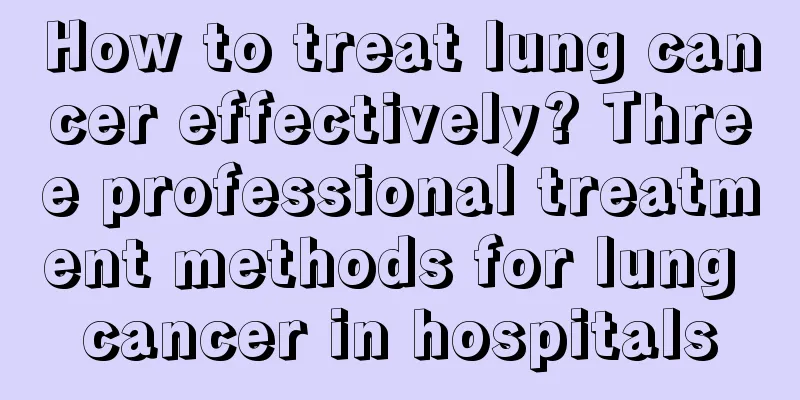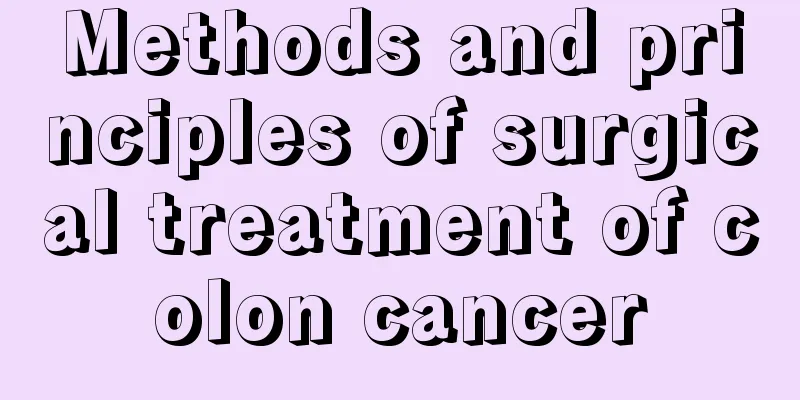How to treat lung cancer effectively? Three professional treatment methods for lung cancer in hospitals

|
Lung cancer, also known as bronchogenic carcinoma, is a cancer of the lung parenchyma. Its harm is frightening. Clinically, the early symptoms of lung cancer often include coughing, hemoptysis and other symptoms. As the disease progresses, the patient's symptoms begin to gradually manifest, such as shortness of breath. So, what should we do if we have the early symptoms of lung cancer? 1. Surgical treatment: Currently, most treatments for lung cancer advocate maximal removal of the lung cancer and maximal retention of lung function. In recent years, more advocates have advocated lobectomy and combined treatment with surgery and multiple methods. A) Commonly used lung resection methods include: 1) pneumonectomy; 2) lobectomy; 3) sleeve lobectomy; 4) segmentectomy; 5) tumor resection. B) Standard lobectomy. C) Cryosurgery. 2. Radiation therapy: 1) Radiotherapy for small cell lung cancer (SCLC) is often combined with chemotherapy; 2) Radiotherapy for non-small cell lung cancer (NSCLC) includes preoperative radiotherapy, postoperative radiotherapy, and radical radiotherapy. The main complications of radiotherapy include esophageal damage, lung damage, heart damage and myelitis. 3. Chemotherapy: In recent years, chemotherapy has received increasing attention in the treatment of lung cancer, and chemotherapy for small cell lung cancer and non-small cell lung cancer should be treated differently. 1) Chemotherapy is the main method for treating small cell lung cancer, which mainly includes: single-drug chemotherapy, combination chemotherapy and alternating chemotherapy. 2) Chemotherapy is far less effective for non-small cell lung cancer than for small cell lung cancer. It mainly includes: single-drug and combination therapy, and adjuvant chemotherapy in radiotherapy. There are many methods to treat lung cancer. At present, comprehensive treatment is the main approach. However, no matter which treatment method is used, it must be considered based on one's own specific situation. This will alleviate the patient's symptoms and complications and promote the patient's recovery. I hope everyone can pay attention to this. |
<<: Will I get liver cancer if I have HBeAg? Is liver cancer contagious?
>>: What are the daily care for lung cancer patients? 4 daily care methods for lung cancer
Recommend
What is the best way to treat lung cancer? Three best methods to treat lung cancer
How can lung cancer be treated so that lung cance...
What to do with chapped mouth corners, how to treat it
Chloasma actually happens from time to time in ou...
Treatment of gallbladder cancer metastasis
Gallbladder cancer grows rapidly after onset and ...
Lymph nodes under the cheeks
The doctor told me that the lymph under the cheek...
How to prevent colon cancer after cholecystectomy
Colon cancer is the third leading cause of death ...
Constipation can actually lead to sudden death, three dietary therapies can easily prevent constipation
Constipation is not a serious disease, but it ser...
The reason why bird's nest turns into water
Washing bird's nests is a very troublesome th...
Is acupuncture therapy instrument useful?
With the development of medicine, the treatment o...
What should you pay attention to in your diet to prevent liver cancer? To prevent liver cancer, do 4 things to eat and 4 things not to eat
A survey in China shows that one in every 12 Chin...
Solubility standard of potassium chloride
Potassium chloride may be needed in many aspects ...
Treatment of mucosal injury during radiotherapy for nasopharyngeal carcinoma
How to deal with mucosal damage during radiothera...
What to do if your eyes hurt after swimming
Many people suffer from conjunctivitis due to wat...
Is it okay to wash your face with tea water?
Women have many ways to care for their skin. Diff...
What are the effects and functions of cinnamon essential oil?
Cinnamon is a spice plant that has been widely us...
Ways to promote blood circulation
As early as more than two thousand years ago, anc...









